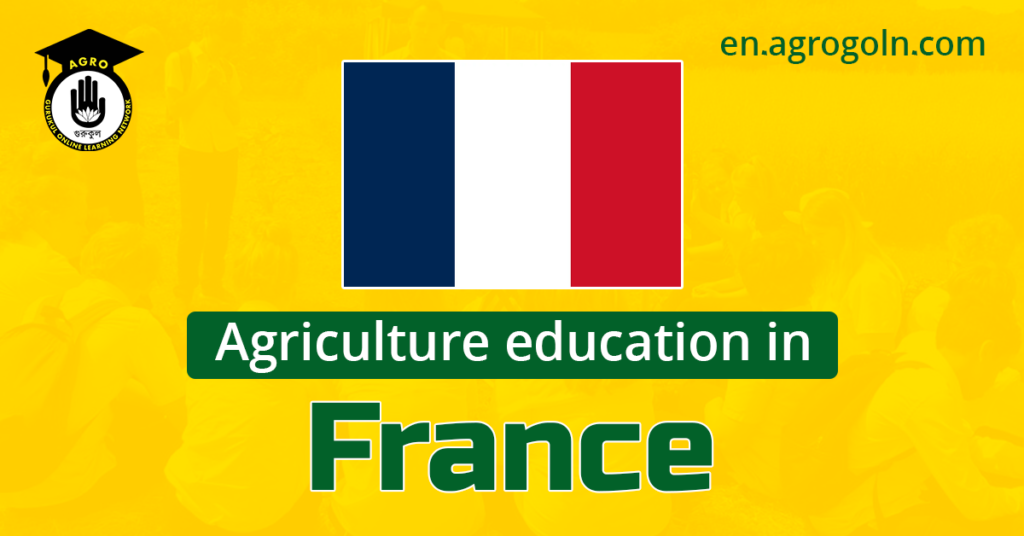Agriculture Education in France: Past, Present, and Future. France, with its diverse and fertile landscapes, is one of the world’s leading agricultural powers, best known for its wine, cheese, and grains. But the agricultural industry is not only about the produce—it also heavily revolves around the knowledge and skillsets of the farmers who drive this vital sector. To cultivate these capacities, agricultural education plays a key role. In France, the formal agriculture education system dates back to the 19th century and continues to evolve, focusing on sustainability and technological advancements.
Agriculture Education in France
This article aims to provide an in-depth understanding of the development, structure, and future prospects of agricultural education in France.
Historical Overview:
Agricultural education in France has its roots in the 19th century. The first agricultural schools, including the National Institute of Agronomic Research, were established during this time. Early curricula were designed around traditional farming practices, with a focus on manual labor and elementary farming techniques.
However, following the Second World War and the subsequent mechanization of agriculture, there was a shift towards a more scientific and technical approach. As farming became more industrialized, agricultural education needed to adapt to this changing landscape. Consequently, a new generation of agricultural schools emerged, providing a more sophisticated level of training that incorporated new farming techniques, machinery, and knowledge in agronomy.
Current Structure of Agricultural Education:
Today, the French agricultural education system is comprehensive, offering various pathways for learners at different stages, whether for those interested in farming, food production, forestry, or environmental science. The system is managed by the Ministry of Agriculture and Food, ensuring that education aligns with the needs of the French agricultural industry.
Secondary Education:
At the secondary level, agricultural education is offered in vocational high schools known as ‘Lycées Agricoles.’ These institutions provide vocational baccalaureate courses, preparing students for a career in farming, horticulture, or other related sectors. Students can specialize in various fields, including viticulture, livestock management, or agroecology, among others.
Higher Education:
For those seeking further study, France boasts some world-renowned agricultural universities and grandes écoles. Institutes such as AgroParisTech, SupAgro Montpellier, and Agrocampus Ouest offer undergraduate and postgraduate programs in agricultural sciences. These programs cover a wide range of subjects, including agricultural engineering, food science, agronomy, and environmental management.
Continuing Education:
France also provides continuing education for adults seeking to upgrade their skills or change careers. This could involve courses on sustainable farming methods, wine production, or organic farming.
Apprenticeships:
Apprenticeships play a vital role in agricultural education in France. They allow students to gain practical experience and apply theoretical knowledge, equipping them with the skills necessary for a successful career in the industry.
A Focus on Sustainable Agriculture:
In line with global trends, there has been a growing emphasis on sustainable agriculture within French agricultural education. Curricula now include topics such as organic farming, agroecology, biodiversity conservation, and climate change mitigation. France’s approach to sustainability in agricultural education is two-fold. First, it incorporates sustainable practices into traditional farming education. Second, it offers specialized programs for those who specifically want to work in the field of sustainable agriculture or environmental management.
Embracing Technology:
Just as the agricultural sector worldwide is experiencing a technological revolution, so too is agricultural education in France. Today’s learners are being trained to use cutting-edge technologies, such as precision agriculture tools, drone technology, and AI-powered farm management systems. This modern approach not only equips them with the skills needed in the 21st-century farming industry but also promotes innovation and entrepreneurship in agriculture.
The Future of Agricultural Education in France:
As the global challenges surrounding food security, climate change, and sustainability continue to evolve, so too will the need for skilled agricultural professionals. France’s agricultural education system is well poised to meet these challenges, with its solid foundation, adaptability, and forward-looking vision. Future efforts are likely to further integrate technological advancements, such as the use of big data and AI in farming, and place a stronger focus on sustainable and resilient agricultural practices.
To ensure the continued success of its agricultural industry, France will need to maintain a strong emphasis on agricultural education, fostering innovation and sustainability while still valuing the rich traditions that have shaped its agricultural landscape.
Agricultural education in France is much more than just teaching farming techniques—it’s about preparing the next generation of farmers, researchers, and policymakers to face global agricultural challenges. The French model of agricultural education, marked by its comprehensive structure, focus on sustainability, and embrace of technology, is a robust system capable of not just responding to the evolving demands of the agricultural industry, but also shaping its future direction.
See more:
#Agro #Agriculture #AgroGurukul #AgricultureGurukul #GurukulOnlineLearningNetwork

